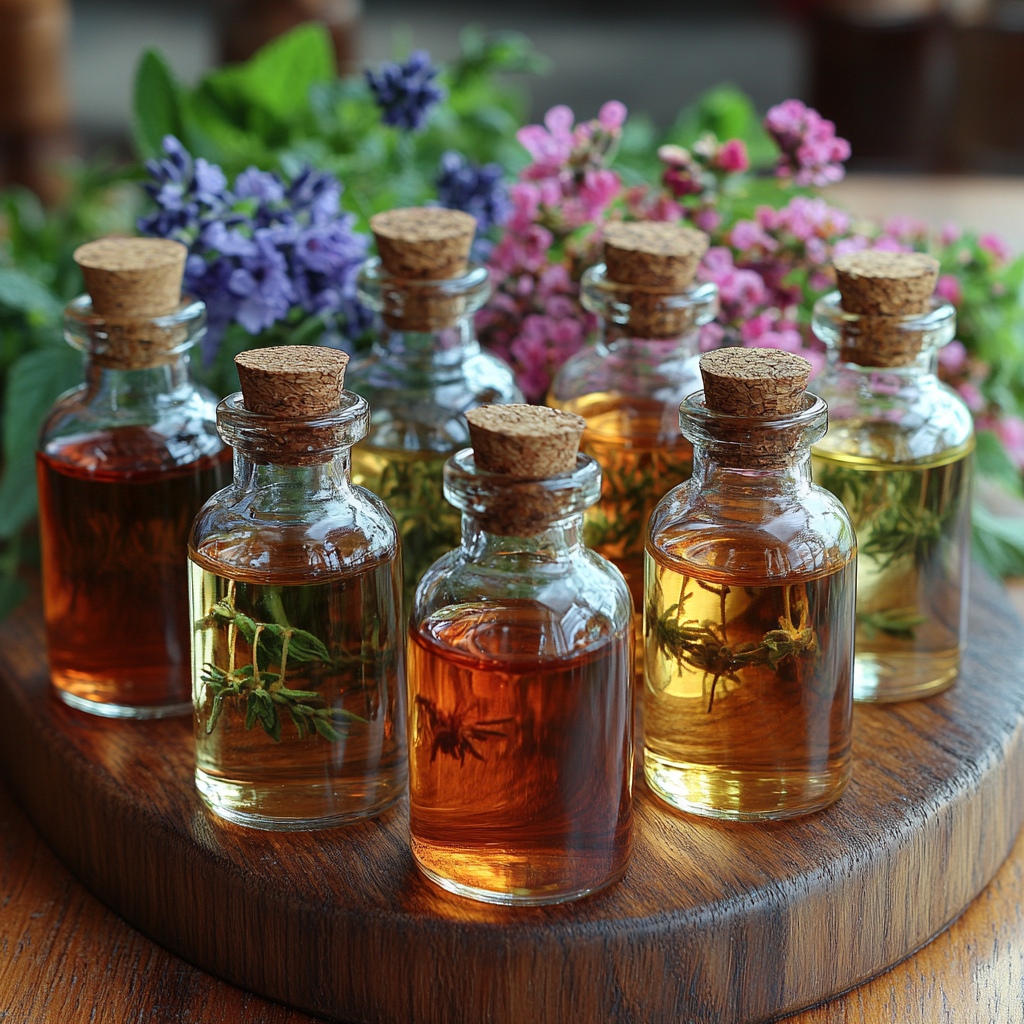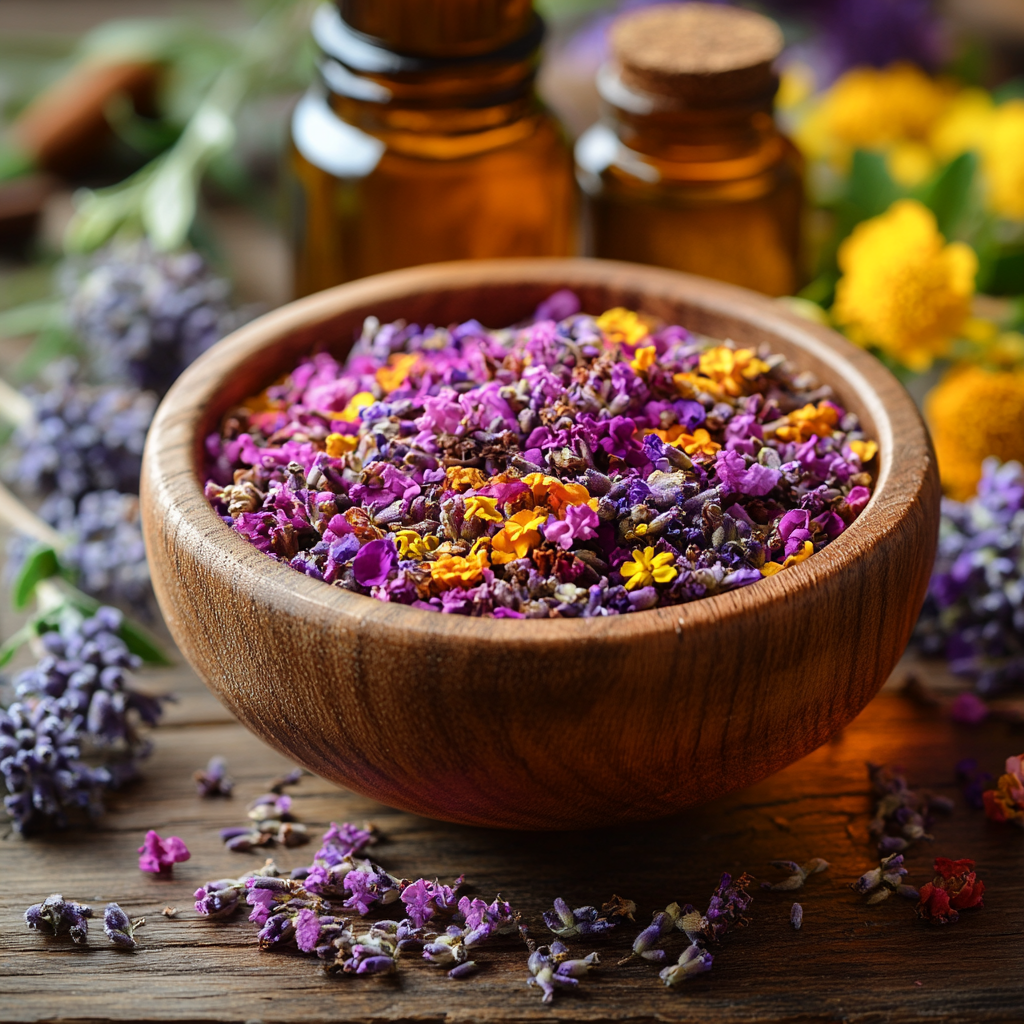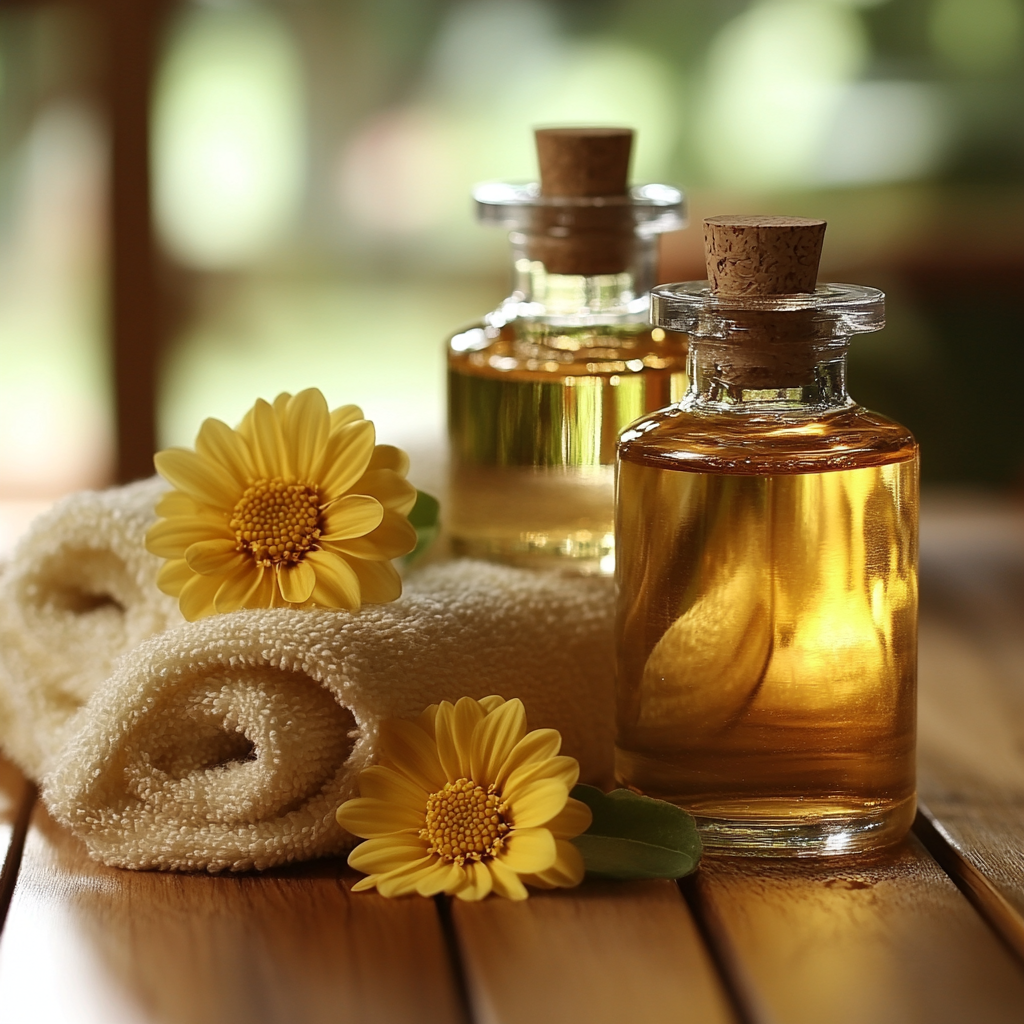📋 Table of Contents

Aromatherapy is more than just a pleasant scent—it’s a **powerful healing tool** that has been used for centuries to promote **relaxation, mental clarity, and overall well-being**. Whether it’s the calming effect of lavender or the refreshing boost of peppermint, essential oils offer a natural way to enhance both **mind and body**.
By incorporating aromatherapy into your daily routine, you can **reduce stress, improve sleep, boost immunity, and even relieve physical pain**. In this guide, we’ll explore how aromatherapy works, its key benefits, and practical ways to use essential oils for a healthier life.
What Is Aromatherapy?
Aromatherapy is a **holistic healing practice** that uses **natural plant extracts** (essential oils) to improve physical and emotional well-being. These essential oils are derived from flowers, herbs, leaves, bark, and even fruit peels, each carrying **unique therapeutic properties**.
Used in **diffusers, massages, baths, and even skincare**, aromatherapy has been shown to **relieve stress, uplift mood, enhance focus, and support better sleep**.
Whether you need relaxation, energy, or emotional balance, aromatherapy offers a **natural, non-invasive solution** to enhance your well-being.
How Aromatherapy Works
Aromatherapy works through the **sense of smell and skin absorption**, directly affecting the **limbic system**, the part of the brain responsible for emotions and memory.
Here’s how it influences the body:
- **Inhalation** – When you breathe in essential oils, scent molecules travel to the brain, triggering emotional and physiological responses.
- **Topical Application** – When diluted with carrier oils, essential oils can be applied to the skin for **pain relief, improved circulation, and skin nourishment**.
- **Diffusion** – Using a diffuser spreads essential oil molecules into the air, creating a relaxing atmosphere.
By engaging the **olfactory and nervous systems**, aromatherapy helps **regulate stress levels, promote healing, and improve mood** naturally.
Mental Health Benefits of Aromatherapy



Aromatherapy is widely known for its **mental health benefits**, helping to ease anxiety, boost concentration, and support emotional balance.
- **Reduces stress and anxiety** – Lavender and chamomile have calming properties that help **lower cortisol levels**.
- **Improves sleep quality** – Essential oils like **lavender, sandalwood, and ylang-ylang** promote deeper sleep.
- **Enhances focus and memory** – Peppermint and rosemary boost **mental clarity and alertness**.
- **Elevates mood** – Citrus oils like orange and lemon stimulate **dopamine and serotonin production**.
Incorporating aromatherapy into your routine can create a more **balanced and peaceful mind**.
Physical Health Benefits of Aromatherapy
Beyond mental wellness, aromatherapy also provides a range of **physical health benefits**, from relieving pain to boosting immunity.
- **Relieves headaches and migraines** – Peppermint and eucalyptus can help **soothe tension headaches**.
- **Supports immune function** – Tea tree and eucalyptus have **antiviral and antibacterial properties**.
- **Eases muscle pain and inflammation** – Arnica and ginger oils help with **muscle soreness and joint stiffness**.
- **Improves digestion** – Ginger and peppermint can reduce **bloating and nausea**.
- **Promotes respiratory health** – Eucalyptus clears congestion and improves breathing.
With the right essential oils, aromatherapy can be a **natural way to support physical well-being**.
Popular Essential Oils and Their Benefits
Different essential oils offer unique benefits for both **mental and physical well-being**. Here are some of the most popular options and their uses:
- 🌿 **Lavender** – Reduces stress, promotes relaxation, and improves sleep.
- 🍊 **Orange** – Uplifts mood, energizes, and enhances focus.
- 🌱 **Peppermint** – Boosts alertness, soothes headaches, and improves digestion.
- 🌲 **Eucalyptus** – Clears sinuses, improves breathing, and supports the immune system.
- 🌹 **Rose** – Enhances mood, reduces anxiety, and promotes skin health.
- 🍋 **Lemon** – Refreshes the mind, cleanses the air, and boosts energy.
- 🌼 **Chamomile** – Relieves anxiety, aids sleep, and soothes the skin.
- 🪵 **Sandalwood** – Deepens relaxation, improves focus, and balances emotions.
Choosing the right essential oil depends on your **specific needs and personal preferences**. You can also blend oils for a more customized effect!
Ways to Use Aromatherapy in Daily Life
Aromatherapy is versatile and easy to incorporate into your daily routine. Here are some simple ways to enjoy its benefits:
- 💨 **Diffusing** – Use an essential oil diffuser to fill your space with calming or energizing scents.
- 🛁 **Aromatherapy Baths** – Add a few drops of essential oil to a warm bath for relaxation.
- 💆♀️ **Massage** – Mix essential oils with a carrier oil (like coconut or jojoba) and apply to sore muscles.
- 🕯️ **Candles & Incense** – Burn aromatherapy candles or incense to create a peaceful atmosphere.
- 🌿 **Skincare** – Add a drop of essential oil to your moisturizer for added skin benefits.
- 🛏️ **Pillow Spray** – Spray lavender or chamomile on your pillow for better sleep.
- 🤧 **Steam Inhalation** – Add eucalyptus oil to hot water and inhale the steam for congestion relief.
By incorporating these simple practices, you can enjoy the **soothing effects of aromatherapy** throughout your day.
FAQ
Q1. Is aromatherapy scientifically proven to work?
A1. Yes! Studies show that essential oils can **reduce stress, improve sleep, and even support immune function** through their effect on the nervous system.
Q2. Can I apply essential oils directly to my skin?
A2. No, most essential oils should be **diluted with a carrier oil** before applying to the skin to prevent irritation.
Q3. What is the best essential oil for stress relief?
A3. **Lavender, chamomile, and sandalwood** are great options for reducing stress and promoting relaxation.
Q4. How long should I diffuse essential oils?
A4. It's recommended to diffuse essential oils for **30–60 minutes at a time** to avoid overexposure.
Q5. Can aromatherapy help with headaches?
A5. Yes! **Peppermint, eucalyptus, and rosemary oils** are known to help relieve headaches and tension.
Q6. Are essential oils safe for pets?
A6. Some essential oils, like **tea tree and eucalyptus**, can be toxic to pets. Always check before using around animals.
Q7. Can aromatherapy help with sleep problems?
A7. Yes! **Lavender, chamomile, and cedarwood** promote relaxation and improve sleep quality.
Q8. What’s the safest way to use essential oils for beginners?
A8. Start with **diffusing or using a few drops in a bath**. Always dilute if applying to the skin.